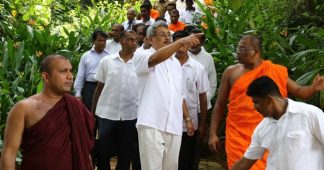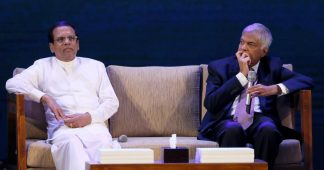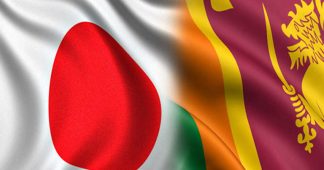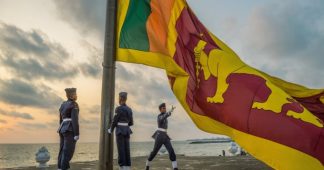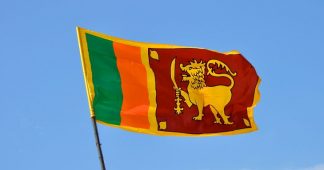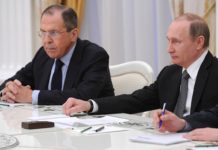By Lasanda Kurukulasuriya
With ceremonies redolent with symbolism, followed by administrative moves that sentclear messages to the public, Gotabaya Rajapaksa took office as President of Sri Lankasignaling a clarity of purpose and a no-nonsense approach to his duties that lay ahead. The indications are that his will be a leadership very different from that of presidents before him, including that of his brother Mahinda.Unlike previous presidents, Gotabaya is not a politician. The war time defence secretary has a reputation for being a tough administrator, a bureaucrat who got things done. As the SLPP’s candidate in this landmark election he ensured that he and his team carried out an exemplary, slander-free and environment-friendly election campaign. This in itself is a sign of a changing political culture.
The messages contained in President Gotabaya’s initial statements – at the Elections Commissioner’s office soon after being declared winner, and at his inauguration ceremony near the historic Ruwanweliseya in Anuradhapura – complemented and reinforced each other. On both occasions he said he was well aware that his victory was delivered by the Sinhalese majority community, and both times he emphasized that it was his duty as president to protect the rights of all including ‘those who did not vote for him.’ Hepledged to carry out that responsibility.He also said he would fulfill all his pledges.Months after the Easter terror attacks that killed 268 innocents, his assertion that he considered national security to be of paramount importance, reassured many.
The intensity of emotion in the welcome the new president received from crowds, wherever he went after the results were known, was unprecedented. But whileSri Lankans celebrated by lighting firecrackers,dancing in the streets and sharing sweetmeats with passers-by, reactions abroad showed an almost surreal kind of disconnect from the euphoria at home. Western mediaand sections of the Indian press spoke in sinister terms of the ‘return of the Rajapaksas.’ TheBBC ran a documentary highlighting alleged wartime atrocities blamed on the defence secretary.Foreign Policy’s article titled “Sri Lanka has a new strongman president’ said “Both minority groups have reason to fear their new government.”A PTI report spoke of Gotabaya reaching out to ‘jittery Tamil and Muslim minorities.’
If sections of the population are cringing in fear as these reports suggest,would it not seem strange that the police, the chairman of the Elections Commission and election monitors – both foreign and local – didn’t notice,and have with one voice declared this to have been one of the most peaceful and free elections?
What is the real source of Western fears of ‘strongman’ leaders in this part of the world?
“A big question for the second round of Rajapaksa rule is whether Colombo will pivot again toward Beijing and what that would mean for the region’s power dynamics,” said Foreign Policy. Strategic affairs analyst Brahma Chellaney told the Times of India, “India faces daunting regional challenges” with “a pro-China communist government in Nepal, an implacably hostile Pakistan and the Rajapaksa family back in power in Sri Lanka.” Noting that Sri Lanka straddles vital sea lanes and is ‘central to India’s maritime security,’ Chellaney sees what he calls a ‘pro-China’ Gotabaya’s rise to power as ‘more than counterbalancing’ the ouster earlier of Beijing-backed Maldivian president Yameen.
In the contest for ascendancy in an emerging multi-polar world, India has become a strategic partner of the US. The US has identified China as its main adversary or ‘threat,’ and expects its partners to do their bit in countering Chinese influence.Sri Lanka, a founding member of the Non-aligned Movement, has historically had cordial relations with China, as well as with US and India. China under its ambitious Belt and Road initiative now has significant infrastructure investments in Sri Lanka including Hambantota port, arousing suspicions in both US and India of its possible military use. This is despite assurances to the contrary from both Colombo and Beijing. Under the previous yahapalana regime the country was drawn increasingly into the US orbit. The controversial and secret defence-related pacts being negotiated and/or signed with the superpower could have unnecessarily plunged the country into a conflict that has nothing to do with Sri Lanka.
President Gotabaya made his inaugural speech in Sinhala, but a few sentences in it were repeated by him in English. This was no doubt for the benefit of diplomats present. On the question of foreign relations he said, in English, “We want to remain neutral in our foreign relations and stay out of any conflicts amongst the world powers.”He urged all countries, in their diplomatic relations with Sri Lanka, to respect its unitary status and sovereignty. The presidenthas thus sent a clear signal to big powers that he will put national interest first, when it comes to matters of foreign policy. Another sentence in English was to say “Corruption will never be tolerated under my administration.” This was possibly a signal to encourage potential foreign investors and trading partners aware of difficulties in doing business in Sri Lanka.
The president has shown diplomatic savvy too, in the manner in which he responded to ‘loaded’ congratulatory messages from the Western bloc. The US and EU in their twitter messages said they looked forward to working with Sri Lanka on matters such as security sector reform, human rights, accountability, good governance, reconciliation and implementing international conventions on fundamental rights.The EU spokesperson’s twitter message went so far as to suggest ‘cooperation in foreign policy and security.’ The president graciously thanking the diplomats for their good wishes, in his replies focused on Sri Lanka’s own priorities such as economic and trade ties, increased inward investment, Sri Lanka’s readiness to create an environmentfor enhanced investment and trade, etc.
From the president’s speeches and messages so far it may be seen that he is positioning himself for a very different kind of interaction with foreign powers than that witnessed under theWickremesinghe-ledyahapalana government.
India’s PM Narendra Modi was the first to congratulate the president-elect on twitter, saying he looked forward to working with him closely “for peace, prosperity as well as security in the region.” India lost no time sending External Affairs Minister S Jaishankar to call on Gotabayawhowill visit India29-30 Nov. Bymaking this his first overseas destination as president he signals the importance of the Sri Lanka-India relationship.
China’s ambassador in Colombo Cheng Xueyuan visited with a delegation. In Beijing the Foreign Ministry spokespersonresponding to reporters’ questions on the Sri Lanka election, was reported as saying “China and Sri Lanka are strategic cooperative partners with sincere mutual assistance and ever-lasting friendship,”adding that China was ready to work with the new leadership and government for ‘high-quality BRI cooperation.’Russia’s president Vladmir Putin in a congratulatory letter said the election of Gotabaya Rajapaksa “definitely meets the fundamental interests of our peoples, and is in line with strengthening the regional stability and security.”
Messages coming in from foreign leaders show how Sri Lanka has become inseparable from its strategic Indian Ocean location in the eyes of the world – with all that this implies for big powers maneuvering for advantage in the region.Moving towards a new moment in history, Sri Lanka’s political leaders would need to evolve to meet rising external challenges resulting from these power games.
Analyst Nitin Ghokale for one sees Gotabaya as a leaderwho has matured with experience. In a detailed TV interview with Strategic News International (SNI), of which he is founder and editor in chief, Ghokale said everybody tends to look at Sri Lanka ‘from the old lens,’ and this leads to a misreading of the situation, because things have changed. Referring to Gotabaya’s reassurances that he was the ‘president of all communities including those who did not vote for him,’ the longtime Sri Lanka watcher said “I think we should take him at face value, because people evolve, they mature.” Ghokale pointed out “There has been a lot of turnaround” in the relationship between the Rajapaksas and the Indian establishment. He candidly admitted to a realization in the Indian establishment that the Sirisens-Wickremsinghe duo “did not deliver as expected” after India “sort of supported them in the 2015 elections.”India was reconciled, though maybe not overtly, to the fact that Gotabaya Rajapaksa was coming to power, he said, and they will work with him. “And he is also willing to work with India … So let’s look at the current situation rather than going back and looking at what happened in the past.
